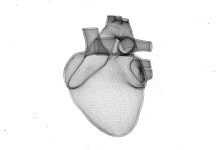Metabolic syndrome and high blood pressure are more likely to occur in women who experience increased severity of hot flashes after menopause
According to research presented at the 25th European Congress of Endocrinology in Istanbul, severe hot flashes following menopause can significantly increase the risk of developing metabolic syndrome and high blood pressure.
This follows a long-term study involving 825 women aged 40-65.
What is metabolic syndrome?
Metabolic syndrome is a cluster of three or more conditions occurring simultaneously.
These include:
- High blood pressure
- High blood sugar
- Excess abdominal fat
- Abnormal cholesterol
- Abnormal triglyceride levels
Metabolic syndrome can be dangerous because it elevates the chances of developing serious health issues, including:
- Heart disease
- Stroke
- Type 2 diabetes
Postmenopausal women face an increased risk of metabolic syndrome and cardiovascular diseases
Postmenopausal women are already at a heightened risk of metabolic syndrome and cardiovascular diseases.
Researchers from the National and Kapodistrian University of Athens followed the participants over a 15-year period from 2006 to 2021.
Shortly after experiencing menopause, the women were examined at Aretaieion University Hospital in Athens.
The researcher’s discoveries underline just how important hormone replacement therapy can be for managing menopause symptoms in women who suffer from severe hot flashes.
By effectively addressing hot flashes, healthcare providers can help reduce the risk of developing hypertension and metabolic syndrome in this population.

The connection between hot flashes and cardiovascular health risks has been established before
In previous studies, women experiencing hot flashes have been found to have a higher likelihood of developing various heart and blood vessel conditions.
This association highlights the significance of addressing and managing menopause-related symptoms in a comprehensive manner.
However, this association has never been studied in women with varying degrees of symptoms on such a large scale.
‘Our long-term study is carefully designed, in which we matched a carefully selected group of women according to the severity of hot flashes and their age’
“Our long-term study is carefully designed, in which we matched a carefully selected group of women according to the severity of hot flashes and their age, and followed them for up to 15 years,” explains lead researcher Dr Elena Armeni.
Hot flashes and night sweats, common symptoms of menopause, can start around the time of menopause and can last up to 10 years.
Hormone replacement therapy can be used to treat menopausal symptoms
Hormone replacement therapy (HRT), which provides the body with hormones which the individual can no longer make after menopause, can be used to treat menopausal symptoms.
HRT can also protect long-term health, especially in women with moderate to severe hot flashes.
‘Our results re-emphasise the role of cardiovascular prevention strategies’
“Our results re-emphasise the role of cardiovascular prevention strategies, such as the use of hormone replacement therapy, which should be implemented shortly after menopause,” said Dr Armeni.
“This healthy group of women who are already candidates for hormone replacement therapy should be encouraged to opt for this treatment.”
The researchers are currently investigating whether these accumulated risk factors for metabolic syndrome and hypertension contribute to the development of heart conditions.
“Our study shows that the most symptomatic women after menopause have more prevalent cardiovascular risk factors, but it is unclear if they are also more likely to develop heart disease, type 2 diabetes, or have a stroke,” Dr Armeni concludes.
“If so, women with more disturbing symptoms will require appropriate health education to ensure they will remain fit and healthy in old age.”











